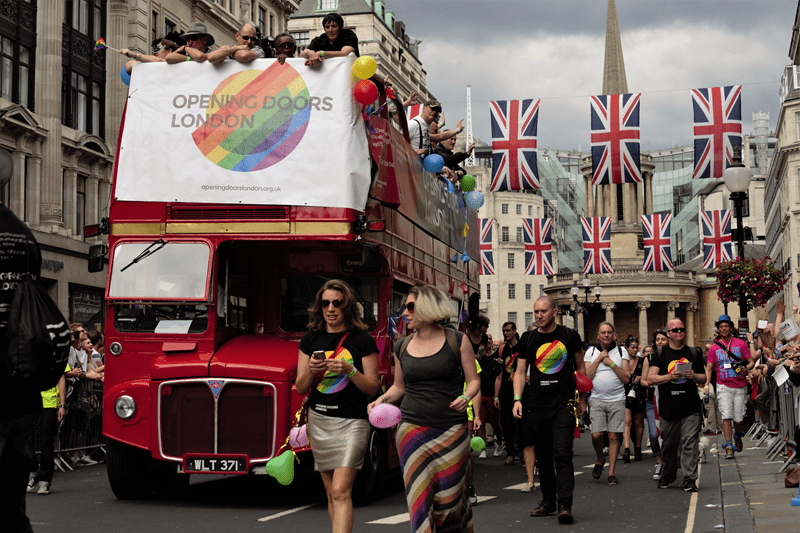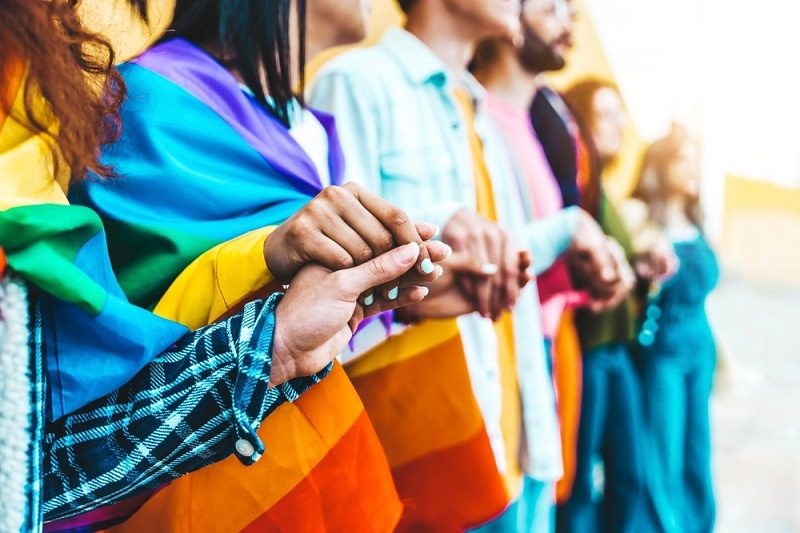New LGBTQ Education Laws: Impacts and Implications

With the beginning of the 2023-2024 school year, over 30 new LGBTQ education laws have come into effect across various states in the United States. These laws have profound implications for both students and teachers, reshaping the educational landscape and sparking significant debate.
This blog aims to delve into the details of these laws, exploring their scope, the diverse ways they are being implemented across states, and their broader impacts on the school environment.
Overview of the New LGBTQ Education Laws
In 2023, more than 30 new LGBTQ education laws were enacted, significantly altering how LGBTQ topics are addressed in schools. These laws vary widely from state to state, reflecting differing political and social climates.
For instance, some states have introduced restrictions on discussing sexual orientation and gender identity in certain grade levels, while others have mandated parental notification before any LGBTQ-related instruction. These laws collectively represent a significant shift in the regulatory framework governing LGBTQ education.
Impacts on Teachers and Classroom Dynamics
Teachers are at the forefront of the changes brought about by these new laws. Many educators have shared personal accounts of the challenges they face under the new regulations. For example, a teacher in Florida expressed uncertainty and fear when a student asked about his sexual orientation, illustrating the tension and confusion these laws create in classroom interactions.
Teachers must navigate these restrictions carefully, often feeling they must avoid discussing LGBTQ topics altogether to comply with the law and avoid potential legal repercussions. This cautious approach can stifle open dialogue and educational opportunities in the classroom.
Student Experiences and Reactions
The impact of these new laws on students, particularly LGBTQ students, is profound. Many students feel that the new regulations create a more hostile and less inclusive environment. For example, a middle school student in Florida reported that the laws have made it more difficult for them to discuss their family situation, as their teachers are hesitant to engage in conversations about LGBTQ topics.
These experiences highlight the personal struggles students face as they adjust to a changing and often less supportive school environment. The new laws also limit the availability of gender-neutral bathrooms and other supportive measures, further complicating daily life for LGBTQ students. These challenges underscore the importance of creating supportive spaces for LGBTQ youth, both in education and in other aspects of life, such as navigating LGBTQ+ dating tips.
Broader Legislative Trends and Debates
The introduction of these new laws is part of a broader national debate on LGBTQ education and the role of schools in discussing sexual orientation and gender identity. Proponents of the laws argue that they are necessary to protect children from inappropriate content and to ensure that parents have a say in their children's education.
Critics, however, contend that these laws are discriminatory and harmful, contributing to a culture of exclusion and stigmatization for LGBTQ students. This ongoing debate reflects deeper societal divides and differing views on the rights of LGBTQ individuals and the responsibilities of educational institutions.
Case Studies from Specific States

In 2023, several states enacted new LGBTQ education laws with varying provisions. Heres a detailed look at these laws and their impacts:
Arkansas
- Laws Enacted: 3
- Description: Bans teaching about LGBTQ topics in grades below fifth; limits the use of pronouns and bathrooms that do not correspond with the sex assigned at birth.
Florida
- Laws Enacted: 2
- Description: Prevents colleges from utilizing federal funds for diversity, equity, and inclusion (DEI) initiatives; forbids teaching LGBTQ topics in grades K-8 and limits health education in grades 6-12.
Alabama
- Law Enacted: 1
- Description: Prohibits transgender student athletes in college from participating on sports teams that align with their gender identities.
Idaho
- Law Enacted: 1
- Description: Limits bathroom use to those matching the sex assigned at birth. This measure is currently being challenged in court.
Indiana
- Law Enacted: 1
- Description: Prohibits instruction on human sexuality to students in pre-kindergarten through third grade.
Iowa
- Laws Enacted: 2
- Description: Restricts the use of bathrooms that don't align with sex assigned at birth; allows parents to opt students out of health/sex education.
Kansas
- Law Enacted: 1
- Description: Bars transgender student athletes in K-12 and college from playing on sports teams that match their gender identities.
Kentucky
- Laws Enacted: 2
- Description: Bars transgender student athletes in K-12 and college from playing on sports teams that match their gender identities; restricts the use of pronouns that don't align with sex assigned at birth; prohibits instruction on human sexuality through fifth grade; prohibits instruction or presentations on LGBTQ identities in all grades. A lawsuit has been filed against the restriction on instruction related to LGBTQ topics.
Missouri
- Law Enacted: 1
- Description: Bars transgender student athletes in K-12 schools and colleges from playing on school sports teams that match their gender identities.
Montana
- Law Enacted: 1
- Description: Restricts the use of pronouns that don't align with sex assigned at birth.
North Carolina
- Laws Enacted: 2
- Description: Bars transgender student athletes in grades 6-12 and college from playing on sports teams that match their gender identities; prohibits instruction on LGBTQ topics in grades K-4.
North Dakota
- Laws Enacted: 4
- Description: Restricts the use of pronouns that don't align with sex assigned at birth; bars transgender student athletes in grades K-12 and college from playing on sports teams that match their gender identities; restricts the use of bathrooms that don't align with sex assigned at birth.
Oklahoma
- Law Enacted: 1
- Description: Restricts the use of bathrooms that don't align with sex assigned at birth.
Tennessee
- Laws Enacted: 4
- Description: Restricts the use of pronouns that don't align with sex assigned at birth; bars transgender student athletes in grades 5-12 and college from playing on sports teams that match their gender identities.
Texas
- Law Enacted: 1
- Description: Bars transgender student athletes in college from playing on sports teams that match their gender identities.
Utah
- Laws Enacted: 2
- Description: Requires students to present a birth certificate to participate in school sports; requires schools to give parents access to any information related to their child's gender identity.
Wyoming
- Law Enacted: 1
- Description: Bars transgender student athletes in grades 7-12 from playing on sports teams that match their gender identities.
These LGBTQ education laws showcase a wide range of restrictions and regulations, impacting various aspects of school life for LGBTQ students and educators across the United States. Understanding and addressing these issues is crucial for fostering inclusivity and awareness about different types of sexualities.
Role of Advocacy and Support Organizations
Advocacy and support organizations play a crucial role in mitigating the negative impacts of these laws on LGBTQ students and teachers. Groups like the American Civil Liberties Union (ACLU) and The Trevor Project are at the forefront of these efforts. They provide resources, legal support, and advocacy to challenge discriminatory laws and support affected individuals.
Research by these organizations has highlighted significant mental health impacts on LGBTQ students due to restrictive education laws. For instance, a study by The Trevor Project found that access to supportive school environments, including gender-neutral bathrooms and LGBTQ-inclusive curricula, significantly reduces the risk of suicide among LGBTQ youth. These findings underscore the importance of creating inclusive and supportive school environments.
Long-term Implications for Education
The long-term implications of the new LGBTQ education laws are profound. These laws not only affect the immediate educational environment but also have lasting effects on the overall well-being and development of LGBTQ youth. Restrictive laws can perpetuate stigma and discrimination, leading to adverse mental health outcomes and decreased academic performance.
Moreover, these laws may face future legal challenges as advocacy groups continue to fight for the rights of LGBTQ students. There is potential for significant legal battles ahead, which could lead to changes or reversals of these laws. The evolving legal landscape will require continuous attention and advocacy to ensure that the rights of LGBTQ individuals are upheld.
You may also like: Learn the 10 Essential Steps to Heal After a Queer Breakup
Conclusion
In summary, the new LGBTQ education laws represent a significant shift in the educational landscape. It is crucial to stay informed and engaged with these legislative changes and understand their broad impacts on education and the well-being of LGBTQ students. Advocacy and support are essential in ensuring that educational environments remain inclusive and supportive for all students.
FAQs
1. What are the key provisions of the new LGBTQ education laws?
The new laws typically include restrictions on discussing sexual orientation and gender identity, limitations on the use of preferred pronouns, and mandates for parental notification of LGBTQ-related instruction.
2. How are these laws being enforced in schools?
Enforcement mechanisms vary by state but generally involve school administrators ensuring compliance. Potential legal consequences for non-compliance can include lawsuits and loss of funding.
3. What can students and teachers do if they feel affected by these laws?
Students and teachers should seek support from advocacy organizations, understand their legal rights, and possibly seek legal advice to navigate these challenges.
4. Are there any exceptions or exemptions within these laws?
Some laws may have specific conditions or exemptions, such as allowing certain discussions if they are deemed age-appropriate or related to health education.
This content was created by AI






















